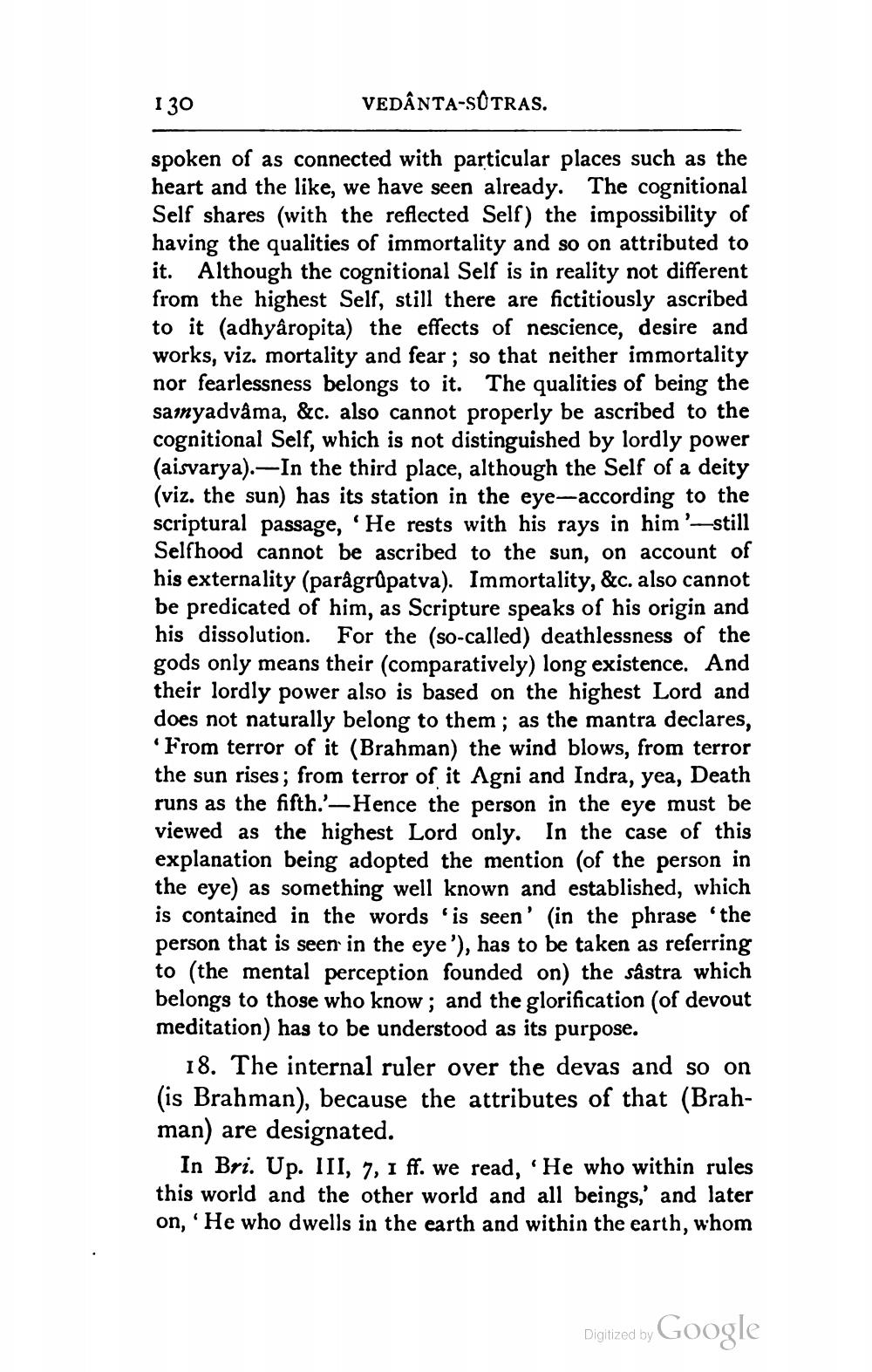________________
130
VEDÂNTA-SOTRAS.
spoken of as connected with particular places such as the heart and the like, we have seen already. The cognitional Self shares (with the reflected Self) the impossibility of having the qualities of immortality and so on attributed to it. Although the cognitional Self is in reality not different from the highest Self, still there are fictitiously ascribed to it (adhyâropita) the effects of nescience, desire and works, viz. mortality and fear; so that neither immortality nor fearlessness belongs to it. The qualities of being the samyadväma, &c. also cannot properly be ascribed to the cognitional Self, which is not distinguished by lordly power (aisvarya).- In the third place, although the Self of a deity (viz. the sun) has its station in the eye-according to the scriptural passage, ‘He rests with his rays in him'-still Selfhood cannot be ascribed to the sun, on account of his externality (parågrûpatva). Immortality, &c. also cannot be predicated of him, as Scripture speaks of his origin and his dissolution. For the (so-called) deathlessness of the gods only means their (comparatively) long existence. And their lordly power also is based on the highest Lord and does not naturally belong to them; as the mantra declares, 'From terror of it (Brahman) the wind blows, from terror the sun rises; from terror of it Agni and Indra, yea, Death runs as the fifth.'—Hence the person in the eye must be viewed as the highest Lord only. In the case of this explanation being adopted the mention of the person in the eye) as something well known and established, which is contained in the words 'is seen in the phrase "the person that is seen in the eye'), has to be taken as referring to the mental perception founded on the sâstra which belongs to those who know; and the glorification (of devout meditation) has to be understood as its purpose.
18. The internal ruler over the devas and so on (is Brahman), because the attributes of that (Brahman) are designated.
In Bri. Up. III, 7, 1 ff. we read, 'He who within rules this world and the other world and all beings,' and later on, 'He who dwells in the earth and within the earth, whom
Digitized by
Digized by Google




